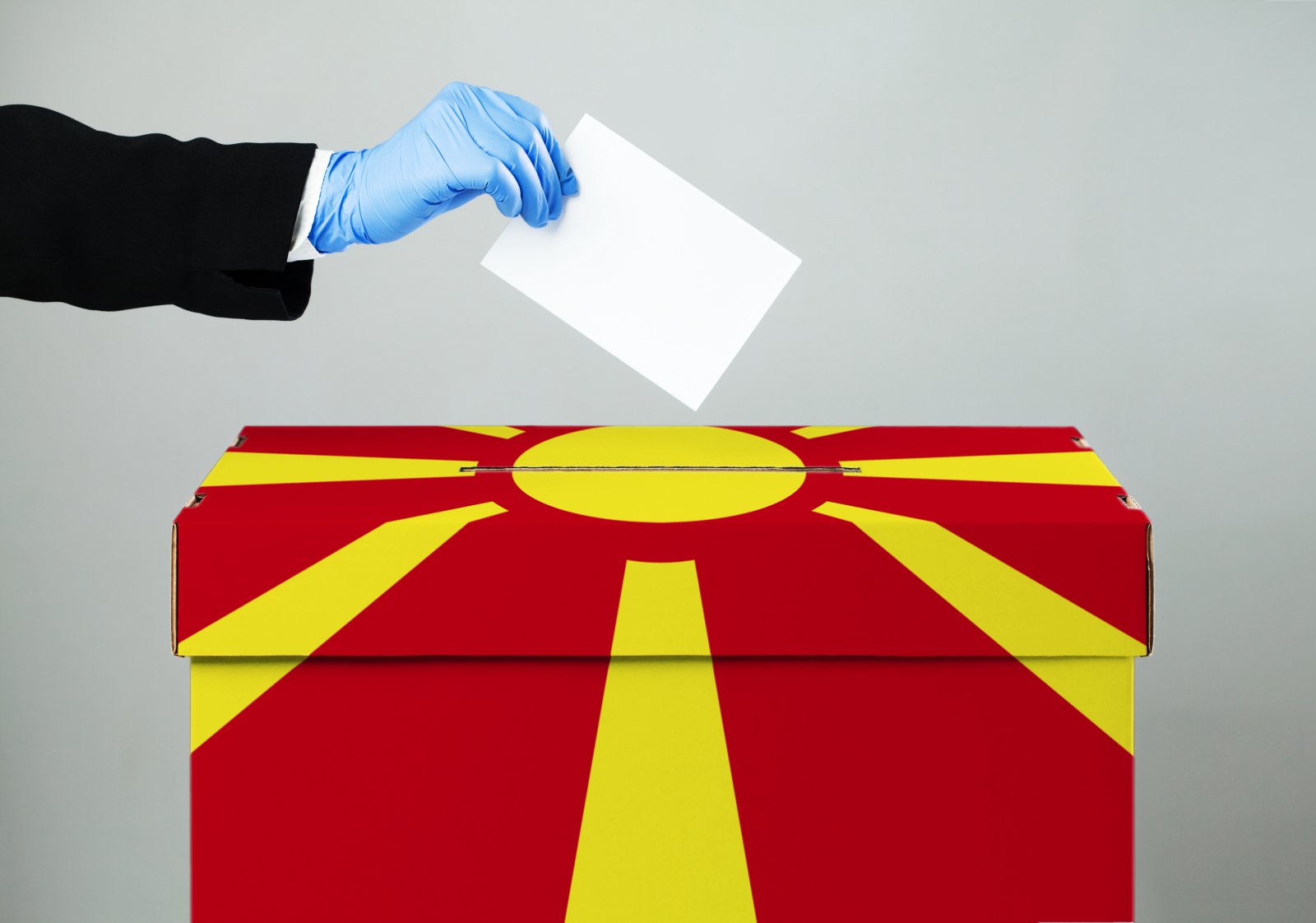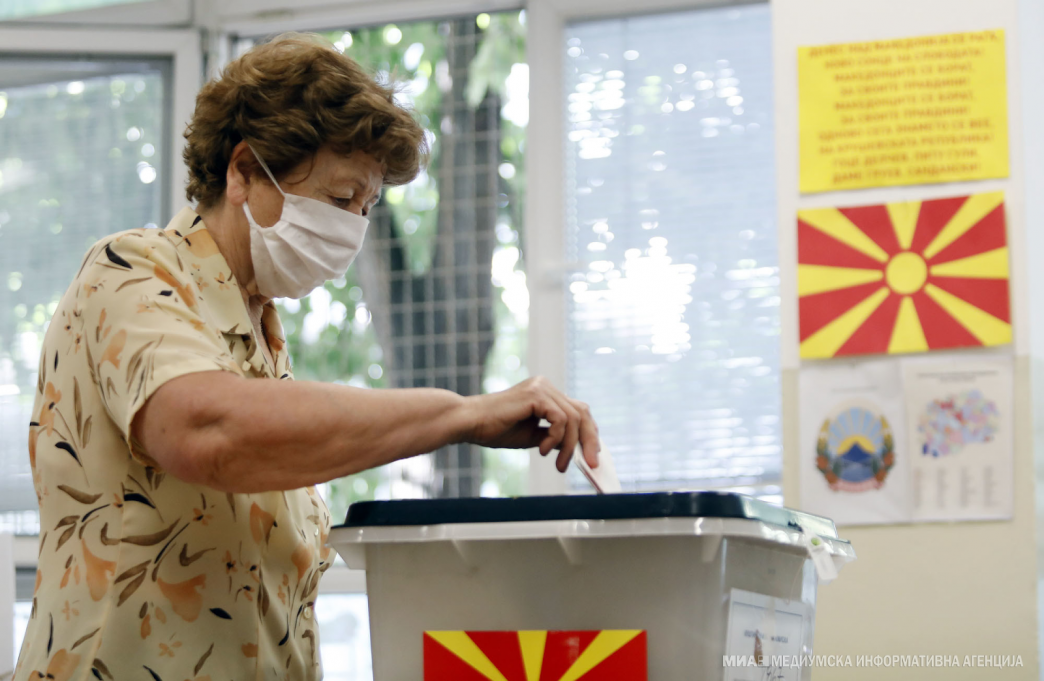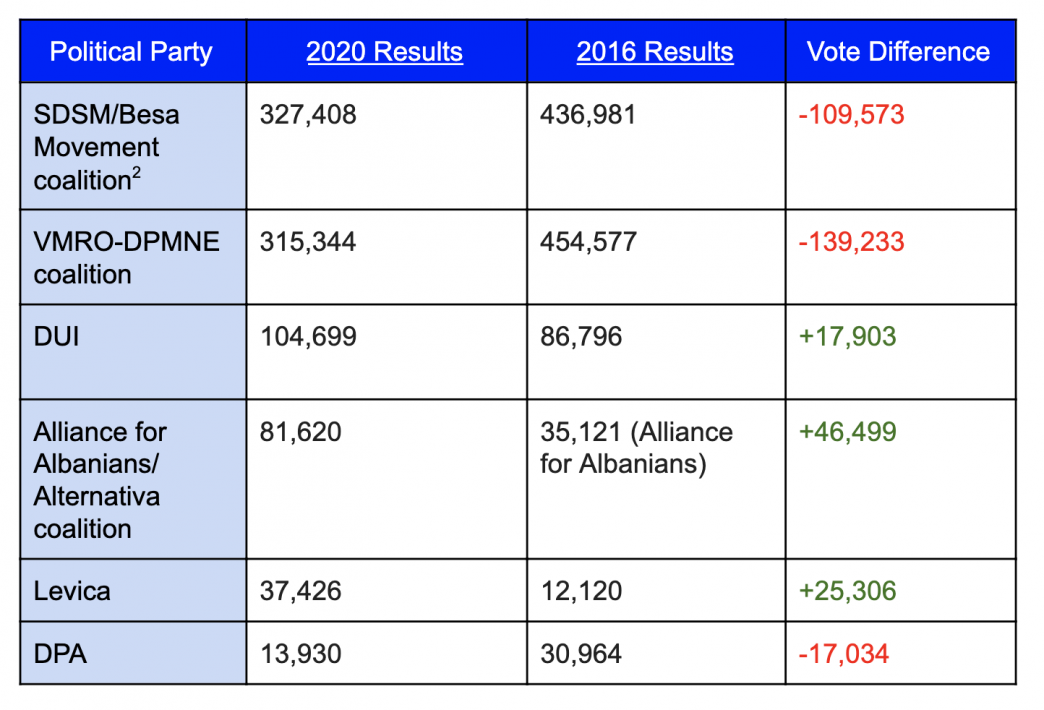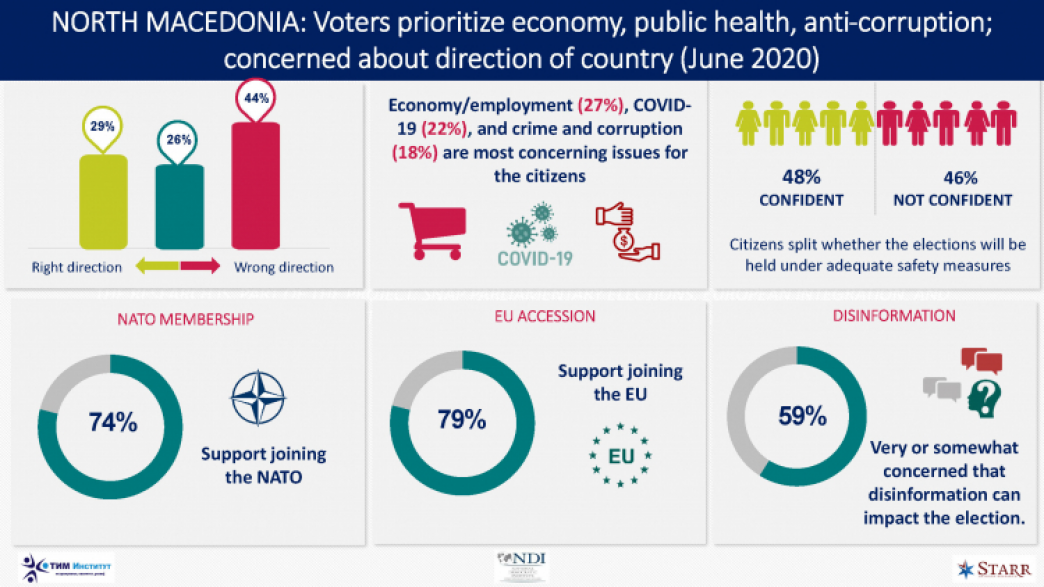
SHARE
Amidst sustained COVID-19 transmission in North Macedonia, 51.3 percent of eligible voters went to the polls on July 15 in snap elections to elect a new parliament.
The incumbent SDSM and its coalition partner, the ethnic Albanian Besa Movement, scored a slim, two-seat lead (46) over center-right VMRO-DPMNE (44). SDSM/Besa need at least 15 additional seats from VMRO-DPMNE, ethnic Albanian parties DUI (15), Alliance for Albanians/Alternativa (12), DPA (1), and/or upstart left leaning Levica (2) to form a governing majority (61).
macedoniaimage.png

Per the Constitution, the Assembly’s constitutive session must be convened 20 days following Election Day. Within 10 days of reconstituting the Assembly, President Pendarovski should give the mandate to “a candidate from the party or parties which has/have a majority in the Assembly” (Article 90). The mandater then has 20 days to submit to the Assembly a program and government composition.
Following the election outcome, all parties elected to parliament had something to crow about. The SDSM-led coalition celebrated a “crystal clear win” with a plurality of votes, while VMRO-DPMNE claimed “the trust of the people in most municipalities”, including the capital Skopje, was on their side as they won a larger number of mandates than SDSM when you deduct the four Besa MPs.
Ethnic Albanian parties as a whole saw an increase in representation with 34 seats, including six ethnic Albanians from SDSM/Besa. Changes to the election code gerrymandered select municipalities (Debar, Krusevo, and Mavrovo and Rostuse) from electoral district six to electoral district five was a contributing factor. DUI celebrated a five-seat increase to 15 from 10, following a provocative pledge to have an ethnic Albanian serve as the country’s next prime minister. Even Levica, with its two seats, eagerly donned the mantle of spoiler and celebrated its 25,000 vote increase since 2016.
SDSM and VMRO-DPMNE both have seen sizable vote decreases as compared to 2016 with a combined number of 250,000 votes.
The elections had been called for April 12, but were postponed owing to COVID-19. North Macedonia became NATO’s 30th member in March, and Brussels finally gave the nod to begin formal negotiations with Skopje on joining the European Union (EU), following France’s long-term refusal to do so. Special Prosecutor Katica Janeva and media owner/TV personality Bojan Jovanovski were sentenced to prison terms of 7 and 9 years, respectively, for extortion in relation to high-profile corruption cases.
Due to the COVID-19 pandemic, Citizens’ Association MOST curtailed its election observation mission, covering 20% of the polling locations where “a few isolated cases of irregularities were observed that did not affect the quality of the election process”. OSCE/ODIHR deployed a modified Special Election Assessment Mission and in its preliminary report cited: “the campaign was marked by negative rhetoric, at the expense of substantive exchanges.” OSCE/ODIHR added, “a series of leaked clandestine recordings of political leaders further contributed to the negative tone.” These recordings exposed alleged criminal wrongdoing by former and current politicians.
In addition to the lackluster economy and unemployment, potential voters were concerned about public health, selective justice, and systemic corruption. NDI gauged public perception in June 2020 to assist the parties in developing party platforms that reflected citizens’ needs and to inform the policies of the incoming government (See infographic below.). Complete polling results can be accessed here.
According to the poll, nine out of 10 voters have been exposed to disinformation, citing greatest exposure from television and social media. The town of Veles has earned a notorious reputation as a center of global disinformation, adversely impacting the 2016 U.S. presidential election and, according to Facebook, recently embroiled in peddling COVID-19 fake news. Malign actors leveled denial-of-service (DDoS) attacks on SEC servers with traffic from multiple places, making it impossible to access the SEC website and paralyzing the electronic release of election night returns.
Despite post-election posturing of party leaders, citizens expect political compromise on key reform areas to stem institutional corruption, grow the economy and improve citizens services like health care and education. When it comes to key areas for reform, citizens’ surveyed remain dissatisfied with progress, especially in the areas of rule of law (66%) and anti-corruption (71%). With the impending start of the accession negotiations, the public turns to the EU for support.
As citizens’ distrust in national politicians and institutions has increased, with more than 50% of citizens expressing distrust, expectations are high for European leaders and institutions to hold the country’s leaders accountable. Political leaders can reach across traditional political and ethnic divides to craft public policies which improve the lives of citizens. Chest thumping and platitudes supporting Euroatlantic integration ring hollow as the state’s institutions and its citizens gradually prepare for the transformative EU accession process. The formation of a government may be the first indication of their intentions.
Based on the election results, all options are on the table at this time, including an extension of the previous governing coalition with DUI or even a grand coalition with VMRO-DPMNE. Whatever the outcome of the negotiations, a hung parliament will likely dictate the need for greater power sharing and compromise. As partisan and ethnic rancor in policy-making processes could stymie the EU negotiation process, statesmanship is needed to propel the key judiciary and anti-corruption reforms seen as a priority for citizens of North Macedonia and the EU.




